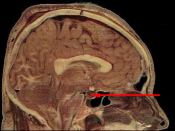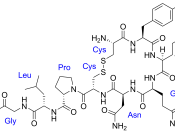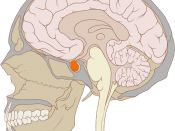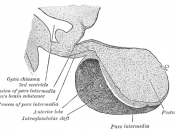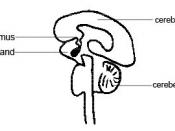Pitocin is the brand name of a synthetic form of oxytocin, a contraction-causing hormone made in a woman's brain. It is the trademark name that King Pharmaceuticals uses for its synthetic oxytocin. This drug is used to stimulate and speed up labor. Oxytocin means "rapid birth." Oxytocin is a hormone produced by the hypothalamus and stored in the pituitary gland.
Pitocin can be used when labor needs to be induced, or during labor if the contractions are not strong enough to progress normally. It is given by way of an IV. The amount of Pitocin used will depend on how the body accepts it. Generally, the amount is increased every 15-30 minutes until a good contraction pattern is achieved.
The benefits for using this drug allow the nurse or Doctor to stop the drug at any time by closing off the IV line. Pitocin has a relatively short half-life (about 15 minutes), so it is easy to reduce the dosage or stop the medication if the uterus becomes hyper stimulated or if the baby shows signs of distress.
The disadvantage is that sometimes the drug can cause fetal distress.
Mothers using Pitocin frequently report increased pain with contractions. Most mother using Pitocin also use pain medication to handle the increased pain. Side effects with Pitocin are rare. Serious side effects with Pitocin include: chest pain or difficulty breathing, confusion, difficulty passing urine, sudden weight gain, excessive or continuing vaginal bleeding, fast or irregular heartbeat (palpitations), seizures (convulsions), severe or continuing headaches, skin rash or itching (hives), and unusual swelling.
Does Pitocin cause a more painful labor? This question is difficult to answer. If a woman's labor isn't leading to cervical dilation, her contractions may be too mild. In this situation, adding Pitocin will make the contractions stronger and more frequent, and more painful. Is that the fault of the medication, or just the strength of contractions necessary to achieve birth? So, yes, labor may be harder with Pitocin than it was without it, but labor is often hard and certainly intense and it takes strong contractions to bring a baby into the world.
